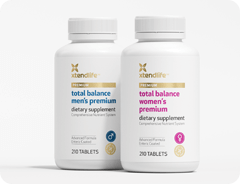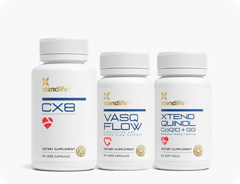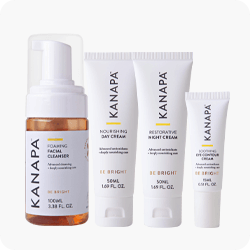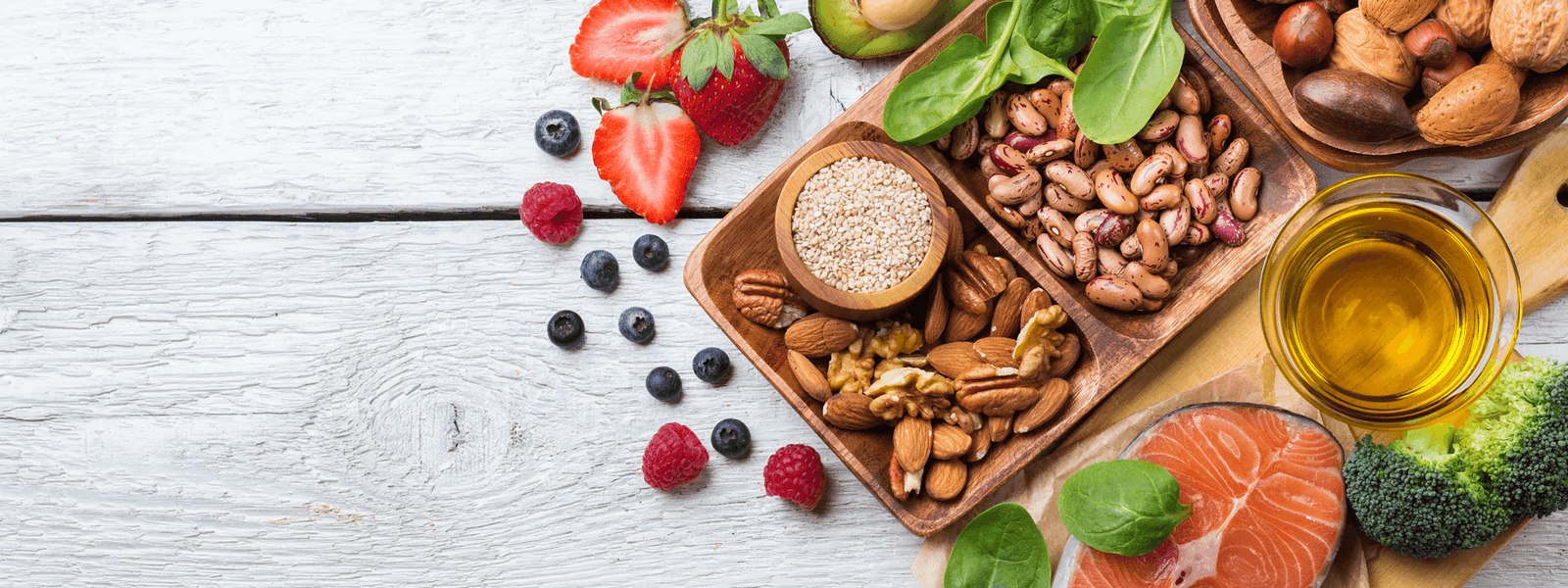Because this is a rather long article I have broken it into two parts. Are you fed up and confused by the conflicting messages about what nutrition is good or bad for your health? Fads come and go. One month, low fat, high carb is all the rage. Next low carb, high protein is ‘In’. Is any of this actually good for us?
As we know, many recommendations from so-called medical "experts" are plain dangerous and disease-causing. Maybe it’s time to visit some key nutritional basics. Facts based on nature and human biology which do not change with time, the latest diet fads or corporate donations.
Fact 1: Your Body Needs Natural (Not Synthetic) Nutrients Daily
Food provides the body with the nutrients it needs for energy, growth, repair, maintenance and reproduction. These nutrients are essentially divided into two main groups: macronutrients and micronutrients.
Macronutrients, so called because the body needs more of them, include carbohydrates, fats, proteins, water and fibre. These are the foods our bodies use for energy and growth. Micronutrients, or nutrients required in only small amounts, include vitamins and minerals. Most foods contain a combination of the two groups.
Your body needs all these nutrients in the right proportion to function optimally. Balance complex carbs, lean proteins and unsaturated fats. The actual ratio is debatable and will vary between different people. Your body can generally sense what is right for you.
Otherwise, it’s like having gas in your car tank but no oil in the engine. You're not going to get very far. Here's a summary of what each of the main nutrients do for you:
Protein
Protein supplies the tissue-building material vital for growth and development. It helps to form your hormones, enzymes and antibodies, and to maintain a good acid-alkaline balance and robust immune system. It is a key source of heat and energy.
Proteins are considered incomplete or complete proteins. Complete proteins contain all the essential amino acids, while incomplete proteins don’t. Good sources of complete proteins come from organic grass-fed animals and uncontaminated fish. Healthy food choices for incomplete proteins include nuts, beans (legumes) and whole grains.
Most people need about 0.8 grams of protein per kilogram of body weight each day.
Carbohydrates
The key role of carbohydrates is to provide energy in the form of glucose for everyday bodily functions, as well as for extra muscle exertion. They also help to develop the body organs and nerve cells.
There are simple and complex carbohydrates. The classification is based on the chemical structure and reflects how quickly sugar is digested and absorbed.
Simple carbohydrates (simple sugars) are chemically made of one or two sugars. Simple sugars like candy, syrups, and soda pop are absorbed quickly and have relatively few if any beneficial nutrients. However, fructose sugar from fruit does contain vitamins, fibre and important nutrients like calcium.
Complex carbohydrates (starches) and are made of three or more linked sugars. Grains such as bread, pasta, oatmeal and rice are complex carbs, as well as some vegetables like broccoli, corn and legumes like kidney beans and chick peas. They take longer than simple sugars to digest.
Nutritionists recommend that we get between 55-60% of our calories from complex carbohydrates.
Fats
Fats provide twice as much energy and calories as carbohydrates or protein. They also provide essential fatty acids, transport fat-soluble vitamins and aid in their absorption, form the structural components of brain cells and myelin (the insulating sheath that surrounds nerve fibers), cushion and protect your organs, increase palatability, and give a feeling of fullness.
As you probably know there is controversy about the respective health benefits and risks of the different types of fat: monounsaturated, polyunsaturated, saturated, and trans fats. In general, the best fats are monounsaturated and polyunsaturated fat.
Though saturated fat in moderation also have benefits and indeed should be an essential part of your diet. The interesting thing about fat is that if you don’t have enough you are more prone to putting on weight. This is why some people experience weight loss when they take our Omega-3 fish oils...this is due to them having a fat deficiency...of the right type.
Trans fats or any hydrogenated oils should be avoided like the plague.
Fiber
The key benefits of fiber are that it helps to control blood sugar and triglyceride levels, lowers cholesterol and cleans your intestinal tract. It also improves absorption of calcium, magnesium, and iron and stimulates immune responses. Because fiber speeds up the passing of food through the intestinal tract, thus preventing constipation or diverticulosis disorders, it naturally and effectively removes toxic waste materials in soft and easy stools.
There are two kinds of fiber: Insoluble fiber is made of plant cells in water and can be used as a laxative. Soluble fiber, made of carbohydrates is soluble in water and helps cholesterol and blood sugar levels
Recommended daily fiber intake ranges between 25-40 gms.
Water
Water is often called the forgotten nutrient. Yet while you can live without food for several weeks, you cannot go without water or liquid for more than a few days.
Indeed, every system in our body depends on water and we are made up of between 55-75% water which needs to be constantly replenished. Water is crucial for transporting nutrients, removing waste, and regulating body temperature.
There is much debate about how much water we need, and what the best ‘form’ is. There isn’t a simple answer because it depends so much on your unique needs and specifically how active you are, the climate, your health status, and if you're pregnant or breast-feeding.
The general accepted rule of thumb is eight 8-ounce (about 1.9 liters) glasses of water and other fluids daily. Though there us actually little scientific evidence to prove exactly how much water or total liquid to drink.
So, we suggest that you listen to your body: drink enough water to quench your thirst, or sip throughout the day, so you produce an odorless, colorless, or slightly yellow normal amount of urine.
The form of liquid is also important. Clearly, excessive alcohol, sodas and caffeinated beverages will not benefit you. Nor will heavily chlorinated, fluoride rich or bottled water. Your best bet is to keep as close to natural sources of water as possible.
But that is easier said than done when so many sources are contaminated. Installing a reputable filtration device to your water supply may be one of the best options if you can’t easily access pure water.
Another recommendation is pure coconut water! If you can easily get this, you will be amazed both by its refreshing sweet taste and nutritional benefits. Living in the Caribbean I am able to drink about ½ a litre daily.
Vitamins
There are 13 vitamins that are vital for good health. Vitamins help the body turn food into energy and tissues. They function as antioxidants, metabolic catalysts, mediators for cell regulation, tissue growth and differentiation and coenzymes which carry various chemical groups between enzymes
Four vitamins are ‘fat-soluble’ because they dissolve in fat. These are vitamins A, D, E, and K. They are digested and absorbed with the help of fats from the diet. These vitamins can be stored in the body for long periods of time, mostly in fatty tissue and in the liver.
Nine other vitamins are ‘water soluble’. They include eight B vitamins and vitamin C. These vitamins are not stored in the body very long, so they need to be regularly replenished from food sources or supplements. However, it is important to be aware that not all vitamins are the same.
There are many different forms from different sources. For example, like vitamin B6 which we use in our supplements. This is much more expensive than the normal B6 but a lot more effective and natural. We did an article about this ingredient recently in a newsletter which you can find.
Minerals
All the above nutrients (vitamins, proteins, enzymes, amino acids, carbohydrates, fats, sugars, oils) and all body processes require minerals for proper cellular function. Although minerals only make up a small percentage (5%) of body weight, they are essential for controlling nerves and muscles, helping to maintain the body's water balance, and buffering the pH (acidity) of the cell and extracellular fluids.
There are 22 minerals which must be obtained through consumption in our diet and then through the absorption process which takes place in our gut.
Minerals are often broken down into two categories: 'major minerals' which are required in the largest quantities (e.g. calcium, magnesium, phosphorus, iron, sulfur, sodium, potassium, and chlorine.), and 'micro minerals' or 'trace elements' which are required in smaller quantities (e.g. copper, selenium, iodine, cobalt, manganese, zinc).
There are also lesser-known minerals that are important in trace amounts which is why we incorporate natural mineral sea salts in our Total Balance.
Part 2 in a couple of days.


 Supplements
Supplements Bundles
Bundles









